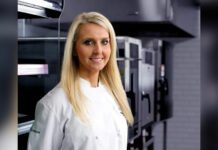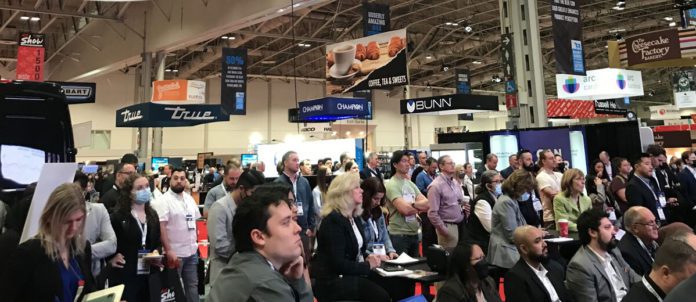By Amy Bostock
TORONTO — At the recent RC Show held in Toronto, the topic of diversity, inclusion and equity caused a lively and thought-provoking discussion on the event’s Speaker Stage. The session, titled Inclusive and Diverse Businesses: Where We Have Improved and Opportunities for Growth, tackled the issues of diversity, inclusion and equity head-on, discussing new data and statistics that show where some progress has been made, and where foodservice-and-hospitality businesses have much room to grow.
Moderated by Elle Asiedu, co-founder, The Re-Seasoning Coalition, the panel comprised experts responsible for driving positive change in the industry, including Stephanie Lui-Valentim, co-founder, Quell Now Inc.; Cheryl Appleton, founder, Canadian Women in Food; Colleen Nolan, HR Development, Training & Community Engagement Specialist Indigenous Tourism Ontario; and Ren Navarro, owner/operator, Beer. Diversity.
The group dove into consumer and operator surveys conducted on the topic of diversity, inclusion and equity in the industry and shared strategies and tactics — many based on personal experiences — that will help businesses to continue accelerating positive change and improvement across all participants in foodservice.
“I’m really hoping our conversation today will be an enlightening and an engaging one,” said Asiedu as she opened the session. “There’s been a lot of movement in the [diversity, inclusion and equity] state but honestly, the topic sparks a great conversation that we need to have to understand how the industry can move forward to be more welcoming.”
Lui-Valentim outlined the work her team does at Quell — a purpose-driven agency that prioritizes and amplifies under-represented leaders in the industry. “Our goal is to create the space, create the platform, and then work with industry around how to integrate meaningful work and focus on diversity, equity and inclusion that’s authentic and sustainable.”
For Appleton, who heads Canadian Women in Food — a national association representing women who own their own businesses in the food-and-beverage space — the goal is “create the space where women who crave connection come together and look to improve themselves both personally and professionally.”
Navarro, a self-proclaimed ‘troublemaker in the industry,’ joked that “I’m the black person who comes up and makes you feel uncomfortable. So thank you to all of you who have come today to listen to us for a while.”
The panel then discussed the first step companies can take to identify opportunities for growth.
“Often, businesses in the industry believe they can hire a third party [to solve the diversity, equity and inclusion puzzle], which is great, but it’s really about putting in the work,” said Navarro. “You need to go into this to build a DE&I strategy, knowing that you need to put work in. And what that means is identifying under-represented voices, researching, learning, unlearning, and really speaking to those in the community that actually have those experiences. It’s key to have that mindset in order to be authentic.”
The panelists all agreed that companies need to ask themselves why they’re implementing a diversity, equity and inclusion strategy. “Don’t just be like, I need more black people, I need more Indigenous people, I need more women of colour — don’t make it a checklist for the folks who are already working for you. Don’t make it a checklist for the people who you might want to have in there. Don’t just do because everyone around you did it,” Navarro emphasized.
For Nolan, her work at Indigenous Tourism Ontario is about “helping more indigenous tourism operators in our communities. I go to my home community, and I see so many opportunities that can bring people in to learn, exposing them to what’s out there, providing the training that they might need to develop themselves. I brought my daughter [to the RC Show] to explore the restaurant industry, with the hopes that she’s going to open her own restaurant one day. That’s what I want — I want our people to succeed.”
The session closed with Navarro admitting the panel, and the industry, doesn’t have all the answers. “But we can work through it together, understanding that this is a life-long learning for all of us. And if we work together and give pieces back and forth, we can actually make meaningful change. This is not about slamming on the brakes for what you’re currently doing. It might be a small tweak. And it could be the small tweak that becomes the big spark that lights that huge fire. It doesn’t have to be these momentous moments — a really small moment can change someone’s life for the better. And if you reach one person, that person becomes your brand ambassador and talks about it, and they keep [the discussion] going.”





















